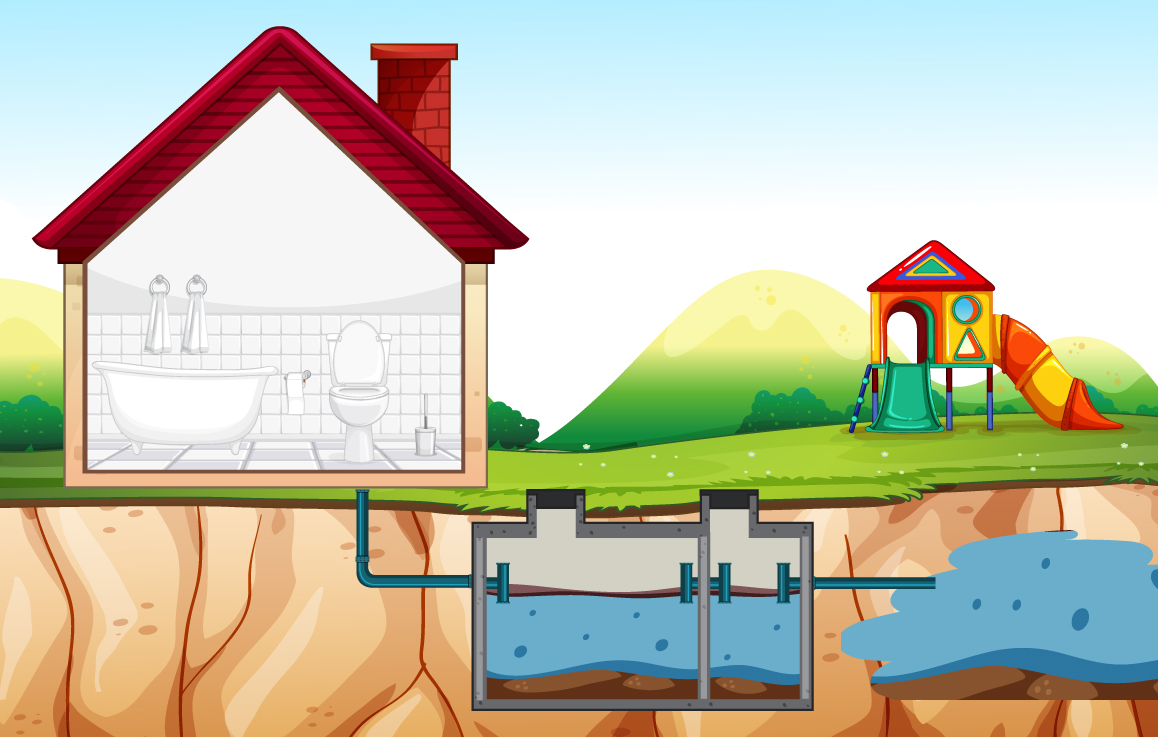Septic Tank Services
Maintaining and servicing a septic tank is crucial for ensuring the longevity of your septic system and preventing costly repairs or environmental issues. Here’s an overview of septic tank services and what you should know:
1. Regular Inspections:
- Frequency: Have your septic tank inspected every 1-3 years, depending on the size of the tank and household usage.
- Purpose: Inspections help identify potential issues, such as blockages, leaks, or signs of system failure.
2. Pumping and Cleaning:
- Frequency: Typically required every 3-5 years, but this can vary based on tank size and usage.
- Process: A professional will remove the accumulated sludge and scum from the tank to prevent overflow and ensure proper functioning.
- Signs You Need Pumping: Slow drainage, unpleasant odors, or gurgling sounds in the plumbing.
3. Maintenance and Repairs:
- Routine Maintenance: Involves checking and servicing components like the distribution box, baffles, and the drain field.
- Repairs: Address issues such as broken or clogged pipes, damaged tank components, or failed drain fields.
4. System Additives:
- Enzymes and Bacteria: Some people use additives to enhance the breakdown of waste, but their effectiveness is debated. It’s best to consult a professional before using them.
5. Drain Field Care:
- Maintenance: Ensure the drain field is not overloaded and avoid heavy machinery or vehicles on top of it.
- Signs of Trouble: Wet spots, lush vegetation, or foul odors around the drain field may indicate problems.
6. Septic Tank Installation:
- Planning: Proper planning and site evaluation are crucial for installing a new septic system. Factors include soil type, water table level, and local regulations.
- Installation: Professional installation ensures the system is set up correctly and meets local codes.
7. Emergency Services:
- Signs of Failure: Backup in toilets, slow drainage, or septic tank overflow require immediate attention.
- Response: Emergency services address urgent issues, often providing temporary solutions while planning for repairs or system replacements.
8. Local Regulations and Permits:
- Compliance: Be aware of local regulations regarding septic system maintenance and repair. You may need permits for certain types of work.
9. Environmental Considerations:
- Protection: Ensure your septic system is not adversely affecting the environment. Proper maintenance helps prevent contamination of groundwater and surface water.
10. Professional Services:
- Finding a Provider: Choose a licensed and experienced septic service provider. Check reviews and ask for recommendations to ensure reliability and quality.
Tips for Septic System Longevity:
- Conserve Water: Avoid overloading the system with excessive water usage.
- Avoid Flushing Non-Biodegradable Items: Items like wipes, sanitary products, and chemicals can clog and damage the system.
- Proper Landscaping: Keep trees and shrubs away from the septic tank and drain field to prevent root intrusion.
Regular maintenance and timely repairs are key to keeping your septic system functioning efficiently and avoiding costly issues down the road.
Septic Tank Services:
- Septic Tank Pumping
- Tank Pressure Washing Sludge and Sand Removal
- Drain Cleaning and High Pressure Water Jetting
- Drainfield Repair
- Manhole Installation
- Tank and Lid Repair
We at the Plumbing Police will be happy to provide you with professional service


